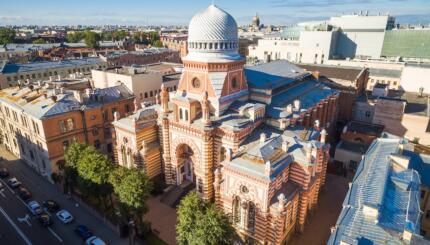Leaders of the UK’s three non-Orthodox religious movements (Reform, Liberal, and Masorti), which together account for about one-third of Britain’s synagogue membership, are seeking greater cooperation and recognition from the chief rabbi of religious diversity. (Jewish Community Online)
Orthodox:
For more than 20 years, the Modern Orthodox community has been sending its high-school graduates to yeshivas in Israel for a year of study. What has been the impact of this enterprise? (Forward)
A portrait of unconventional Modern Orthodox Rabbi Haskel Lookstein of Kehilath Jeshurun in Manhattan, who believes each denomination should criticize its own failings, and who is “one of the few Orthodox leaders to defy the growing resistance to pluralism.� (Jewish Week)
Conservative:
The Conservative movement finally finds something to unify it: the Hekhsher Tzedek initiative.(Forward)
A shul decides to withdraw from the United Synagogue of Conservative Judaism, and, no, they are resolutely not going to say why. (NJ Jewish News)
Reform:
Professor Jack Wertheimer looks at the Reform movement’s “increasing reliance on large numbers of non-Jewish members, the emphasis on personal autonomy, the minimal level of literacy expected by leaders, the freedom of each congregation to shape its own liturgy and synagogue music, and the low identification with Israel expressed by the rank and file� and wonders “for how long will significant numbers of people continue to be drawn to, or stick with, a religious movement that cannot or will not define standards for committed living, and that, except when it comes to political imperatives, has self-consciously shunned the very notion of imperatives? In this regard, the dramatic decline of liberal Protestant denominations may truly serve as a warning�. (Commentary Magazine)
shul
Pronounced: shool (oo as in cool), Origin: Yiddish, synagogue.


